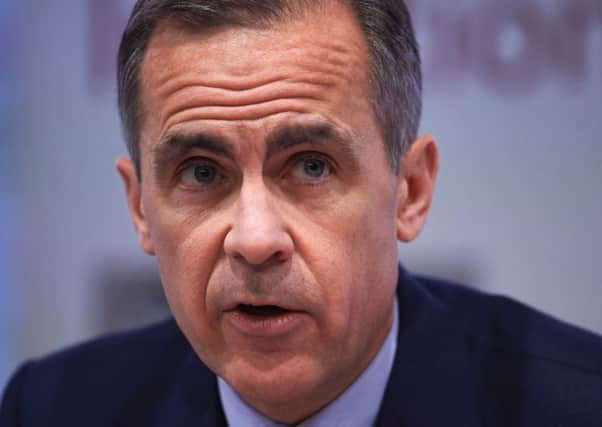Bill Jamieson: Brexit bounce for FTSE 100 is very welcome


In a dramatic Brexit rebound, the blue-chip index rose 439 points or 7.2 per cent to 6,578, a ten-month high. How many pundits forecast that? Certainly not those who piled into sterling ahead of the referendum, and who warned of a major plunge on the stock market. Investors who kept their nerve and didn’t join in the knee-jerk sell-off a week ago now find their portfolios as refreshed as their gardens after a summer shower.
For years I have pointed to the wisdom of the Rip Van Winkle approach to periods of market turbulence: investors who slept through such traumas woke up more often than not to find themselves better off. When markets dived in 2002-3, Rip van Winkle awoke two years later to find a major market recovery in full swing.
Advertisement
Hide AdAdvertisement
Hide AdA long sleep during the financial crisis of 2008-9 would have taken investors through the crisis to an all-time high of 6,091 in February 2011. It then hit a further high in February 2015, more than doubling in value from the depths of 2009.
The Rip Van Winkle approach, of course, does not work in all sectors and in all situations. A shareholder in Royal Bank of Scotland, for example, is still deep in a nightmare that began in 2007. But for deep-sleep investors in broad-based unit and investment trusts, it would have been hard not make a significant amount of money just by switching off the alarm clock and sleeping through.
For investors in overseas markets, the gains of the past ten days have been even more substantial – for, as the pound tumbled, any holdings in overseas currencies received an immediate fillip. UK investors would have enjoyed double-digit returns across a range of markets, even where domestic investors saw little change.
Investors in US shares, for example, would have seen a marginal fall in the S&P 500 Index converted into a 10 per cent gain due to the 11 per cent fall in the pound against the dollar. Even in Europe, UK investors saw sterling gains. While the euro tumbled against most global currencies – falling 2.8 per cent against the dollar for example since the referendum result – the pound fell by more. The result was that even a 5.6 per cent fall on the German DAX translated into a 2.3 per cent gain for pound investors.
So why has the UK stock market rebounded so strongly? And where is it likely to go from here? This upsurge, it should be noted, was not evenly spread across all sectors. The FTSE 100 Index is dominated by global companies with a large – often dominating – percentage of their earnings and assets derived from overseas. The FTSE 250 Index, more reflective of UK plc, is still some 6.5 per cent down on the level a month ago and down 7.1 per cent on a 12-month view.
Several factors account for the overall market bounce. First, while we are in the throes of a political crisis, that is not at all the same as a financial or economic crisis: UK companies are not heavily over-borrowed or as vulnerable to financial shock as was the case in 2008-9.
Second, the pound’s fall is long overdue and cannot be laid solely at the door of the referendum vote. The UK has been running up a colossal trade deficit – imports surging way ahead of imports over exports. That deficit hit a record £39.8 billion last year. That is unsustainable. The effect of a cheaper pound is to lower the prices of UK goods and services in highly competitive overseas markets and gives our exporters a significant boost.
Third, the Bank of England governor Mark Carney signalled last week that an interest rate cut was likely this summer. This, together with assurances that the banking system would be given further liquidity support, should calm concerns across business over higher borrowing costs. Now the opposite looks more likely with a reduction in interest costs for firms and households alike.
Advertisement
Hide AdAdvertisement
Hide AdAnd finally, there is a growing view that the vote result has sent an electric shock through the country and one that should command greater attention to UK productivity and competitiveness. The shock brings in its wake opportunities as well as threats, gains as well as losses. Housebuilders and export-facing companies should be among the beneficiaries. These opportunities should become clearer once the political storm-clouds lift. The Crash That Never Was is a telling signal that, for now, the worst of those panicky forebodings have not come to pass.